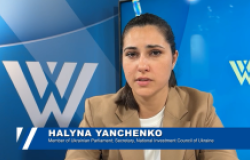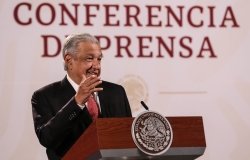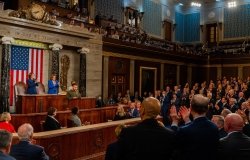Obama and the Middle East: It Will Be Tough to Turn the Page
This week, President Obama looks to turn a new page in the Middle East with his speech and meeting with Israeli Prime Minister Benjamin Netanyahu, but an increasingly frosty Arab spring and an impasse in the Israeli-Palestinian peace process won't let him. Public Policy Scholar Aaron David Miller lays out what the president is up against.
This week, President Obama is looking to turn a new page in the Middle East with his speech and meeting with Israeli Prime Minister Benjamin Netanyahu.
But an increasingly frosty Arab spring and a profound impasse in the Israeli-Palestinian peace process won't let him. Bin Laden may be dead, but America's headaches in a still broken and dysfunctional region live on.
Three months in, much of the Arab Spring has become winter. Tunisia and Egypt are hopeful, but elsewhere, things are grimmer. The ruling Khalifas in Bahrain, backed by the Saudis, have repressed the Shia opposition and community without much hope of offering real reform. In Yemen, the Gulf Cooperation Council-brokered deal to ease President Saleh from power seems to have collapsed. And in Syria, Assad kills his own people in the streets with impunity.
The president's speech needs to find the balance between hope and reality. He needs to welcome and praise the remarkable events of 2011 but can't be too breathless about democracies being around the corner.
Above all, he doesn't need an Obama doctrine where ideological rigidity crowds out much needed flexibility. After all, he'll have to explain why when Qadhafi kills his own people, we intervene militarily, and when Assad kills his, we won't even recall the ambassador. The president does need to articulate some principles to explain American policy but be mindful of the contradictions and anomalies that abound.
The resignation of Special Envoy George Mitchell tells you pretty much all you want to know about his meeting with Netanyahu. There's no peace process and no prospect of one right now.
Besides, the prime minister has real leverage. Who needs the Republicans when you have Palestinians for allies? The Abbas-Hamas unity accord has made the prime minister untouchable. Why fight with the Israelis over a non-existent peace process or give a speech laying out U.S. positions when there's zero chance of negotiations and when the good Palestinian (Abbas) has just jumped in bed with the bad ones?
Instead, Obama should see what he can get from Netanyahu on the big issues like borders that he might shop with Abbas. The smart money is on keeping his powder dry for now; he'll need it to head off the next crisis this fall when the Palestinians go to the UN seeking a declaration of virtual statehood.










